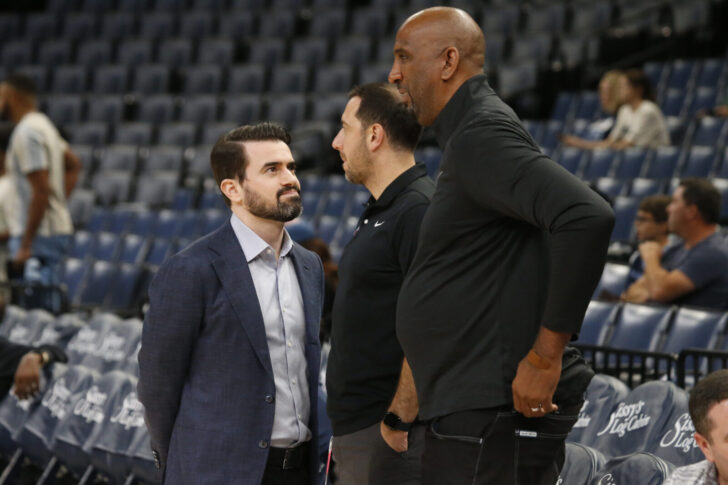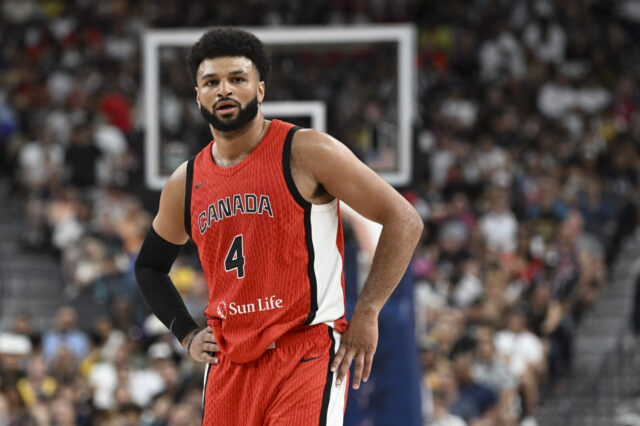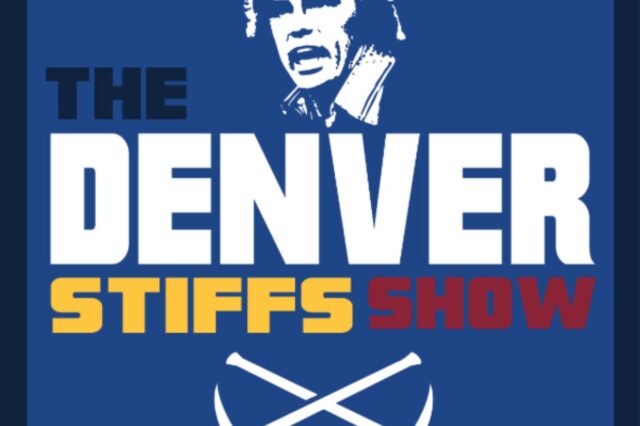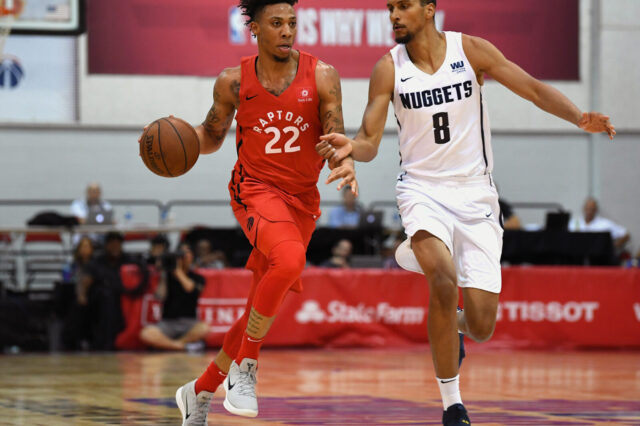The Denver Nuggets stumbled into the All Star break. There’s no sugar coating that. Back to back blowouts with excuses to justify poor performance were punctuated by a complete collapse on their homecourt against a Sacramento Kings team who had every excuse in the book to not show up. By the time the Nuggets players were headed to Cabo (and Nikola Jokic to Indianapolis) the angry fervor from fans was palpable. It’s in fans nature to get caught up in the moment. Despite the Nuggets putting up one of the best records in the league, the subpar performance unfolding in front of the fan base the week prior to the break was the only thing that was considered. And….that’s perfectly normal and fine for a fan to do. However, it will bleed into criticism of any and everything and perhaps the biggest criticism being levied recently in light of the bumps in Denver’s road is their lack of movement during the trade deadline and apparent lack of interest in adding to the roster via the buyout market. While the criticism is understandable, it’s also misplaced.
A decision Denver made long before this rough patch but unfortunately reared it’s head in and right around said rough patch is the Nuggets were set with their roster from the jump. At Media Day general manager Calvin Booth made it clear what the Nuggets priority was. He stated “repeating would be great, but more importantly how do we sustain this and how do we win multiple championships.” That drove decisions to add three older rookies on guaranteed contracts, players ready to contribute sooner rather than later but still on affordable contracts. It drove decisions to maintain continuity with Denver’s limited number of free agents. Ultimately the team could not afford to retain Bruce Brown but did lock in veterans DeAndre Jordan and Reggie Jackson at reasonable annual compensation. By and large the decision was made to run it back, and why wouldn’t that be the decision for the team who just won a championship and had seven of it’s nine rotation players age 30 or younger at the start of the season.
While the decision in all likelihood is the prudent one, from a fan perspective it can be boring if not outright frustrating. When the trade deadline came along many fans were hoping for an upgrade, generally speaking to one of the aforementioned veterans the Nuggets retained in the offseason, but from the team perspective there’s little motivation to do so. Fact of the matter is Jackson’s production is on par with what it’s been pretty much his entire career when he wasn’t in a starting role. He’s per 36 numbers are nearly identical to what he put up a decade ago when he was in Oklahoma City getting Sixth Man of the Year consideration and he shoots at a better rate now than he did then. Jordan meanwhile is proving to be far more than what the Nuggets probably expected. Billed as a locker room vet, Zeke Nnaji’s struggles have thrust Jordan into becoming a fixture in the rotation, serving as the ninth man and on occasion still sitting in favor of Nnaji. Like Jackson, his per 36 numbers are right on par with the majority of his career save for it’s very peak. It’s hard to see where the Nuggets could have got demonstrable improvement over those guys in the trade market given: A) Denver’s very limited cap flexibility, B) their fairly set in stone rotation and C) their limited draft capital to offer in a trade. Upgrading over Jackson almost assuredly would take a current member of the rotation, a draft pick and/or punting on one of those rookies Denver has pegged for cheap long term contributions.
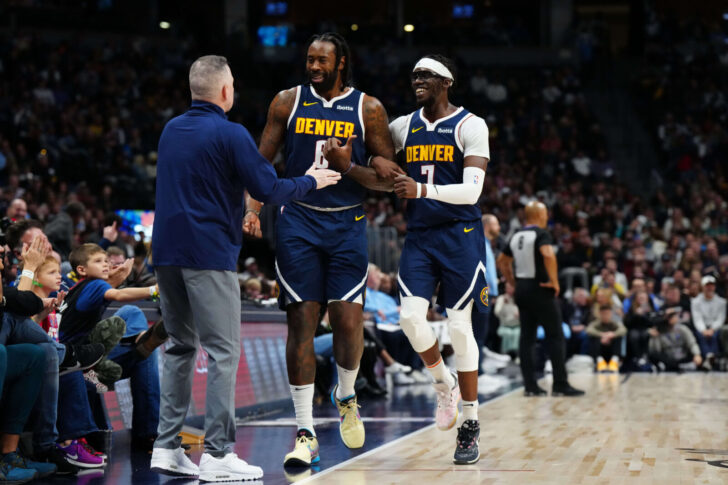
Dec 28, 2023; Denver, Colorado, USA; Denver Nuggets center DeAndre Jordan (6) and guard Reggie Jackson (7) skip toward head coach Micheal Malone in the second half against the Memphis Grizzlies at Ball Arena. Mandatory Credit: Ron Chenoy-USA TODAY Sports
When you start analyzing the cost vs return it doesn’t make a ton of sense from Denver’s end. This is even more true with Jordan who plays a role that was eliminated entirely in the playoffs last season. How much should Denver give up for a guy who’s going to fill a 10-12 minute a game role for 30 or so games? Probably not much. They tried addressing this same issue last year, trading Davon Reed and three (3!) second round picks to add Thomas Bryant. He ended up playing in just eighteen games and amassed a total of two hundred and five minutes in his Nuggets career. While Reed was a player Denver didn’t have in their long term plans, as a team who has broadcast their plan for long term success being centered around affordable young players, giving up three second round picks for two hundred and five minutes of total playing time seems to be in stark contrast of that plan.
The other option Denver has midseason to improve the roster is the buyout market. Players who for one reason or another get waived and bought out of their contracts can sign with new teams up until March 1st. Technically they can sign beyond March 1st but won’t be eligible for the playoffs and generally speaking most teams in the buyout market are playoff contenders so signing a buyout player after March 1st is very rare. The Nuggets have additional restrictions that limit their flexibility in this market. As a first tax apron team the Nuggets are not permitted to sign any player in the buyout market who was making over the non-taxpayer mid-level exception when they were bought out. That’s a lot of CBA jargon to say Denver can’t sign any player who was making more than $12.4 million when they were bought out. This is problematic for Denver because the typical buyout player is a veteran who was on a decent sized contract that got dealt for salary matching purposes to a rebuilding team who isn’t going to give minutes to a veteran that doesn’t align with their rebuilding plan.
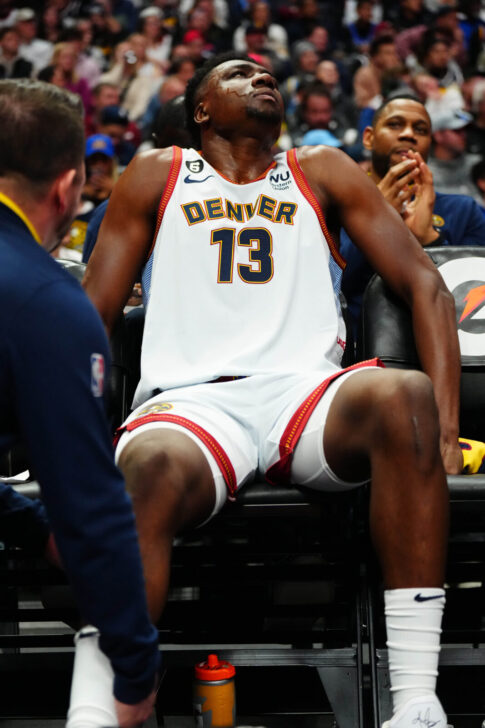
Feb 15, 2023; Denver, Colorado, USA; Denver Nuggets center Thomas Bryant (13) is treated on the bench in the fourth quarter against the Dallas Mavericks at Ball Arena. Mandatory Credit: Ron Chenoy-USA TODAY Sports
Players like Spencer Dinwiddie or Kyle Lowry very well may be an upgrade over Jackson, but because of their previous contract and Denver’s status as an apron team there was never a chance to bring them to the Nuggets. The Nuggets also do not have an open roster spot so they would have to waive someone to make room. You start to really ask yourself if it’s worth it. Is Daniel Theis or Bismack Biyombo such an upgrade over Jordan that the Nuggets should give up on one of their rookies? Will Delon Wright make such a difference in comparison to Jackson that it would be worth being completely disloyal to Vlatko Cancar and cutting Nikola Jokic’s best friend on the team while he recovers from injury? Is there anyone on the market Denver could sign that would be a clear improvement to their depth over Justin Holiday? I’m not convinced and by every indication Calvin Booth isn’t either.
That’s just fine. The Nuggets are going to win or not win a championship this year based on the play of their starters, Jackson, Peyton Watson and Christian Braun (or maybe Holiday). That was the plan from day one and that is the plan now. It may not work but the likelihood of a fifteen minute a game player they didn’t add midseason being the reason it doesn’t work is extremely slim. Remember, the Nuggets added Jackson in the buyout market last season and while he is a fixture of their rotation this year, he was benched almost entirely shortly after coming to the Nuggets last season. It goes to show that even for veteran guys adapting to a new team on the fly, particularly one as unique as Denver, is incredibly difficult. After basically striking out spectacularly last season with midseason moves and it costing them in total one young player (Bones Hyland), a depth player and a second round pick (the Nuggets got two second rounders in the Hyland trade to offset the three they sent out for Bryant) you can understand why the Nuggets are less motivated to repeat the pattern and are much more content to let ride and see if this group can take them where they have before: an NBA title.
